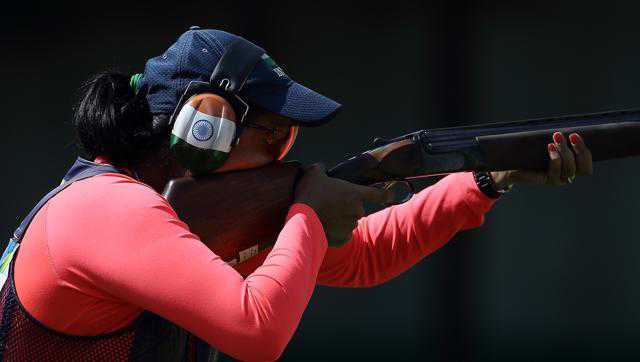The case of the four disqualified junior women trap shooters has taken an interesting turn.
Manisha Keer, Pragati Dubey, and Shefali Rajak (all finalists), and Kirti Gupta, who took part in the qualification round, had been disqualified two days back from the National Championships underway at Jaipur as their ammunition did not conform to the international shooting body (ISSF) normsÔÇØ.
However, on Thursday, the three finalistsÔÇÖ disqualification was revoked by the National Rifle Association of India and they were awarded Team Gold (the three girls comprise the Madhya Pradesh team).
However, Manisha, Pragati and Shefali cannot stake claim to individual medals as the Trap Finals — which was reduced to a farce as only three other shooters were left to contest for medals ÔÇô is over and the medals awarded.
The NRAI seems to have overturned its decision as the issue seemed to be snowballing into a major controversy, with Olympic silver medallist in double trap, Hakan Dahlby of Sweden, questioning the logic behind the disqualification on a social networking site. In fact, sources have confirmed to indianshooting.com that the quality of ammunition and size of pellets was as per the international norms.
indianshooting.com is also in possession of the Shotgun Cartridge Test Record FormÔÇØ of one of the disqualified shooters, where the weight of the cartridge is shown within permissible limit (23.79 to 24.00gms; the permissible limit it 24.5 grams), but the slot for ÔÇÿpellet diameterÔÇÖ has been left blank, which is strange. It should have had the diameter of the pellet, which is not there.
Hakan Dahlby, the Olympic silver medalist, wrote on a social networking site that he has never seen a mesh being used to ascertain the diameter of a pellet in his 20 years of professional shooting career. The promoters of the particular ammunition, ÔÇÿCleverÔÇÖ, and quite a few shooters too seem to be at sea regarding the method of testing used by the NRAI jury.
I have never ever heard about a mesh used by ISSF Judges to check pellets roundness/dimensions?ÔÇØ Dahlby had told indianshooting.com yesterday.
Besides, did the NRAI officials follow standard procedure for testing the ammunition as written in the ISSF Rulebook?
When on duty, Jury Members must wear the red Jury vests while the Shotgun Referees must wear the blue Referee vests that are available from ISSF Headquarters,ÔÇØ the ISSF Rule Book says.
The ISSF also details the equipment (Rule 3.4) which are a must before inspecting cartridges. These include, Cartridge Control Forms (Annex III), Cartridge Cutter, Vernier Scale (Pellet Diameter Measurement), Magnet (Steel Pellet Check) and Envelopes in different colors, among other things.
Besides, scales must be calibrated by the Government or its approved agency. If the scales are manufactured in Germany they shall have calibration from TUV-Rheinland with headquarters in Cologne, Germany. If the scales are manufactured in India they must be approved by Indian Standards Institute with headquarters in Manak Bhawan, New Delhi.
It is not known whether the sieve acquired by NRAI for checking of diameter of pellets was calibrated by the Government approved agency.
Not just that, in the rule book, clear method for final verdict of diameter of pellets can only be made by Vernier scale certified by a Government approved agency.
Also, did the federation select the shooters by a random computer draw (ISSF Rule 3.3)?
With so many technicalities involved, and with the careers of so many junior shooters — some from extremely humble backgrounds ÔÇô at stake, the federation could have done well to be extra cautious. The loss of confidence is huge and itÔÇÖll take a long time for the four juniors to regain it.


